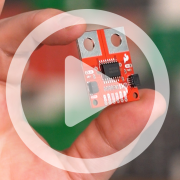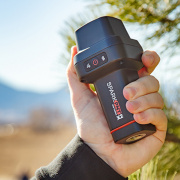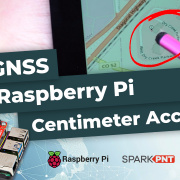New Products!
Time for some new products!
Has everyone recovered from the Halloween candy sugar-high? If not, channel some of that energy into building a new project - we've got new products to get you started!
Want to hack your car? We've got just the product for you! The CAN-BUS shield allows you to use your Arduino with the CAN protocol. It has a uSD card socket, serial LCD connector, EM406 GPS connector, and a joystick for input. We also have a DB9 to OBDII cable that connects to the shield. Just don't blame us if you somehow void your warranty!
Next up we have a new GSM module with a SIM card socket on board. There's nothing quite like getting an automated text message coming out of your next project. It brings wireless functionality to a new level. The ADH8066 uses a specialized SMD connector which we sell here.
There's another addition to the MondoMatrix family! The PowerMatrix allows you to control up to 32 'ports' up to 12V. So you can control relays, motors, LEDs, or anything else you want. It talks to the Displayduino with RS485 communication. If you have a large project that requires a lot of power control, you might want to look at the PowerMatrix.
We also have a new RFID module for you to play with. The SMB130 is a DIP module that allows you to read 13.56 MHz Mifare RFID tags. The module uses UART or I2C and also has 2 general purpose inputs and outputs. All you need to get it working is an antenna. RFID is easy to use and can make for some cool projects.
So, we made a mistake and ordered the wrong IC. Unfortunately, they're ours now and we can't return them. The PIC32MX is a fantastic chip, but we needed it in a different package. We have a bunch of these powerful microcontrollers that someone else can surely use.
To go along with our XBee sockets, we have XBee headers. Really, you can use them for anything and don't need to use them for XBee applications. They are generic 10-pin headers with a 2mm pitch.
Here is a 2.5mm 8" audio cable that will be utilized in a future product (oh, the suspense). The product isn't ready for prime-time yet, but here's the cable. It's a standard stereo 2.5mm audio cable (not to be confused with the standard 3.5mm) with bare leads on the end.
We have another pogo pin to add to our selection. If you aren't familiar with pogo pins, they are spring-loaded pins that are useful for temporary connections to boards. We use them for testing so we don't have to solder to boards to test them. Check out the PogoBed tutorial. We just got in these pins which use a concave tip for contacting the board.
Well, that's it for this week. Check back next week for more new stuff!














